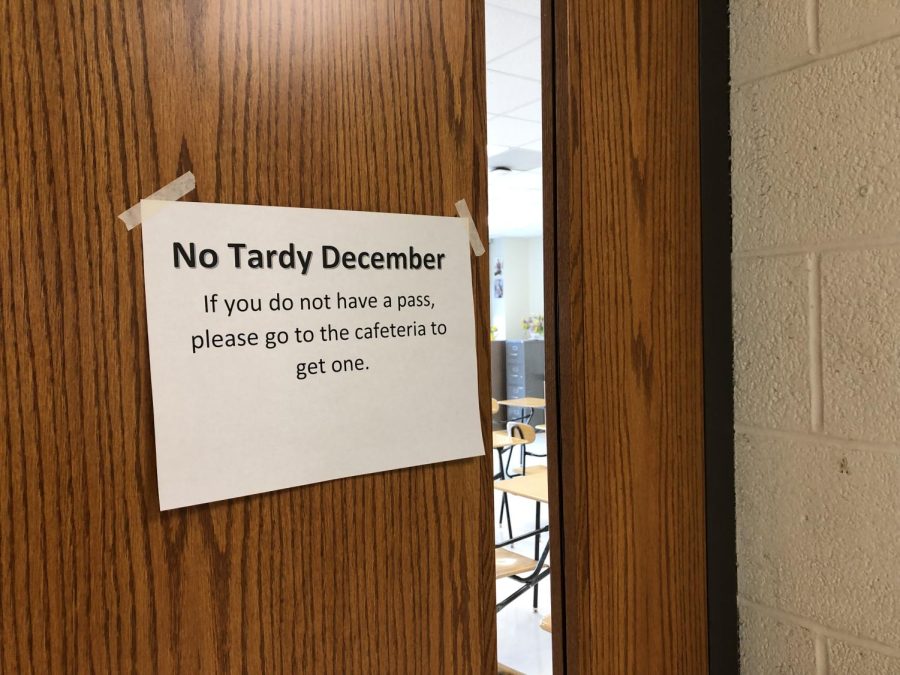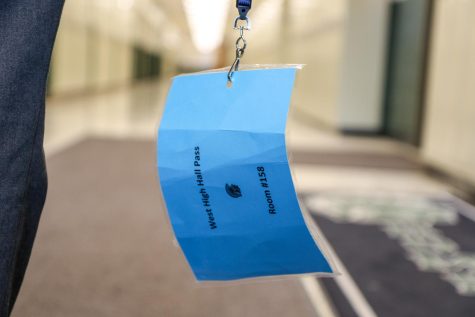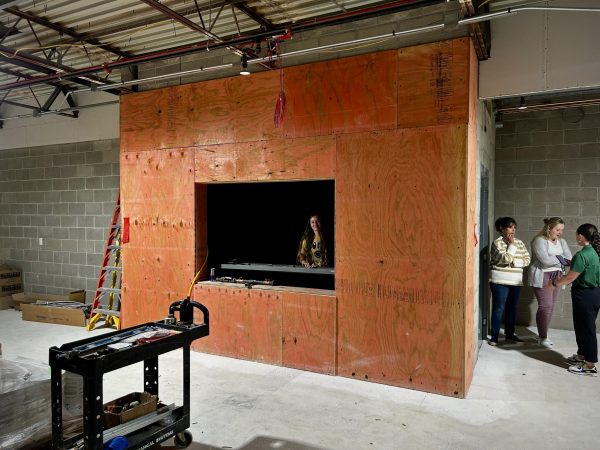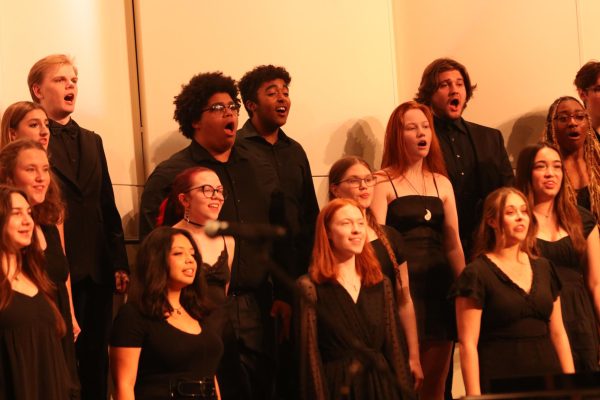Changes to tardy policy produces mixed feelings
West High recently implemented a new tardy policy
Many classrooms at West High have posted signs on the outsides of their doors so students are reminded about the new tardy policy.
December 12, 2022
Shortly after Thanksgiving break, it was announced to West High students that there would be a change in district policy. This time, the change would involve tardiness. “No Tardy December” was invented and enacted near the start of the second trimester.
The policy outlines that teachers must lock their doors the moment the bell rings. Teachers are not allowed to let students into class unless they show they have obtained a tardy pass. Guidance counselors among other teachers sit in the common area near the cafeteria waiting to hand out and sign tardy passes. Teachers are also required to spend the first ten minutes of one of their prep periods patrolling the hallways. They spend those ten minutes “sweeping” to make sure nobody is lingering in the halls without a pass.
Over the past few years, a huge concern of administrators has been the number of tardies there are each day. Tardies reached a shocking amount of 563 the two days before “No Tardy December”. Since the implementation of these new rules, that number dropped to 274 tardies in the two days afterward. Overall, teachers have been in support of the new policy as tardiness has become a problem and infringed upon their ability to teach the curriculum.
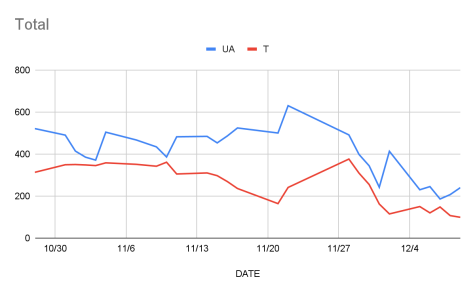
Kelly Bergmann, guidance department, expressed her support for the new policy.
“It has drastically reduced the number of UAs (unexcused absences) and tardies that we’ve had. It’s in a direct downward spiral, which has been really great. We’re happy to see kids in class,” Bergmann said.
Nick Bushkosky, science department, also backs the policy.
“What we’ve learned is practice can be committed to behavior. If we’re a little bit more strict right now, I think students will continue coming to class on time,” Bushkosky said.
Though Bergmann is not a classroom teacher, the general notion she’s getting from the teachers is positive.
“It’s been really good feedback from what I’ve heard. I think the teachers have had a hard time closing the doors because they want kids in the classroom, but they’re also really happy to have the boundary where we expect you to be in class,” Bergmann said.
Bushkosky, however, is in the classroom to witness the effects of the policy firsthand.
“Students are trying more to get to class. There’s a little bit more of a hustle rather than, ‘Eh, he won’t count me tardy.’ They know if we’re all consistent, we will count them tardy if they’re not here on time,” Bushkosky said. “It’s not my favorite thing to stand at the door and tell kids that they have to go get a pass, that’s not something I enjoy doing but I do think it’s working.”
Bergmann elaborated on her hopes for the outcome of the new rules.
“We hope the kids are having a really good experience when they’re in their classrooms and that they want to be there on time and are ready to be engaged. We (administration) plan on following through with this for a long time,” Bergmann said.
That’s not to say that most students at West High are regularly tardy. 68 percent of students at West have between zero and five tardies. We hope the kids are having a really good experience when they’re in their classrooms and that they want to be there on time and are ready to be engaged. — Kelly Bergmann
Some students at West High are not a fan of the new policy, with the most common complaint being that it’s a hassle to get a pass written out every time you’re tardy and that it just wastes more time. Olivia Harris ’23 explains her annoyance with the rule change.
“It’s annoying and it stresses you out even if you’re normally on time. I’m normally on time but I find myself freaking out. Statistically, it has been effective,” Harris said. “It is a pretty extreme response, which I get because there has been a big problem.”
Harris offered up her opinion on a change she would like to see within the policy as well.
“I think that first period should be a bit of an exception just because there are a lot of reasons that someone would be late to first period other than not wanting to be there. It’s punishing people who may have little siblings they have to take care of or no solid means of transportation in the morning,” Harris said.
To help students adjust to the new policy, incentives have been introduced. Each day, students with no tardies are entered into a drawing where they can win small prizes such as gift cards, candy, coupons or West athletic items. A drawing is done at the end of each week, with bigger prizes such as Airpods, cash, a Macbook and more.
Punishments for tardies get more severe the more tardies students get. Two tardies to a class will result in a teacher calling home and four tardies in a week will result in a guidance counselor calling home. Six or more tardies will result in a school day spent in SPACE. Students that are habitually tardy will need to check their cell phones into “phone jail” upon arrival to school. Students with more than 10 tardies from Dec. 1-Jan. 27 will not be allowed to attend the winter formal on Jan. 28.



